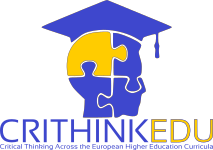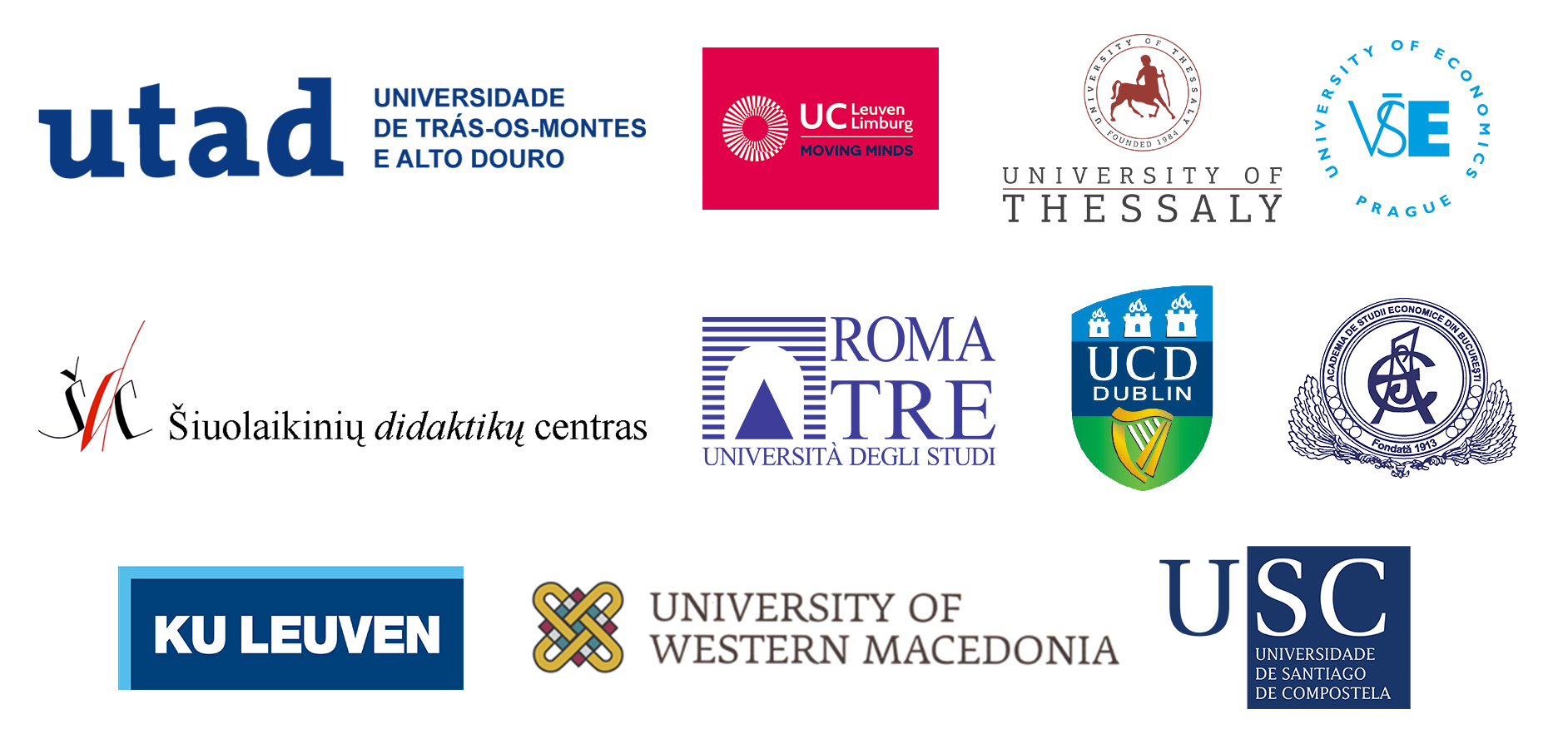Led by our partners from KU Leuven and UC Leuven Limburg (Belgium), our fourth intellectual output – “Promoting Critical Thinking in European Higher Education Institutions: towards an educational protocol” – is now available at http://bit.ly/2XpF87r.
Critical thinking is considered to be an important goal for European Higher Education Institutions. To support the achievement of this goal, an educational protocol is proposed. It builds on all the previous outputs developed in the CRITHINKEDU project, amply debated between the project team members. The protocol has three parts: goals, conditions and supportive interventions. In each part, different examples are provided to guide its implementation at the institutional, program and course levels.
The primary target audiences of this output/report are staff members of higher education institutions with responsibility for the delivery of both undergraduate and postgraduate courses and teaching programs. Other professionals from different fields may also be interested in its content, as will the research community seeking insights on current thinking with regard to the development and promotion of critical thinking. The structure of the report should allow everyone to get an in-depth understanding of the educational protocol as presented in Chapter 5. The nature of this educational protocol, its ambitions as well as the steps of its development are outlined in Chapter 1. The protocol rests on a number of theoretical perspectives and assumptions. These are presented in Chapter 2. One of the assumptions is that critical thinking can be developed when the environment for those involved is well designed. What this entails is discussed in Chapter 3. Another assumption relates to the domain-specific nature of critical thinking. Different strategies and approaches to foster critical thinking skills and/or dispositions are presented in Chapter 4. Finally a synthesis is presented.
We want to thank all the cooperation and effort made by the different teachers, researchers, and students from the Higher Education Institutions of the 9 European countries involved in the project without whom this work would have not been possible. We also thank the Steering Committee members of the CRITHINKEDU project, Diane F. Halpern (Claremont McKenna College, USA), Harvey Siegel (University of Miami, USA) and Ronald Barnett (University College London, UK), for their wise and helpful reflections.
The CRITHINKEDU Team

